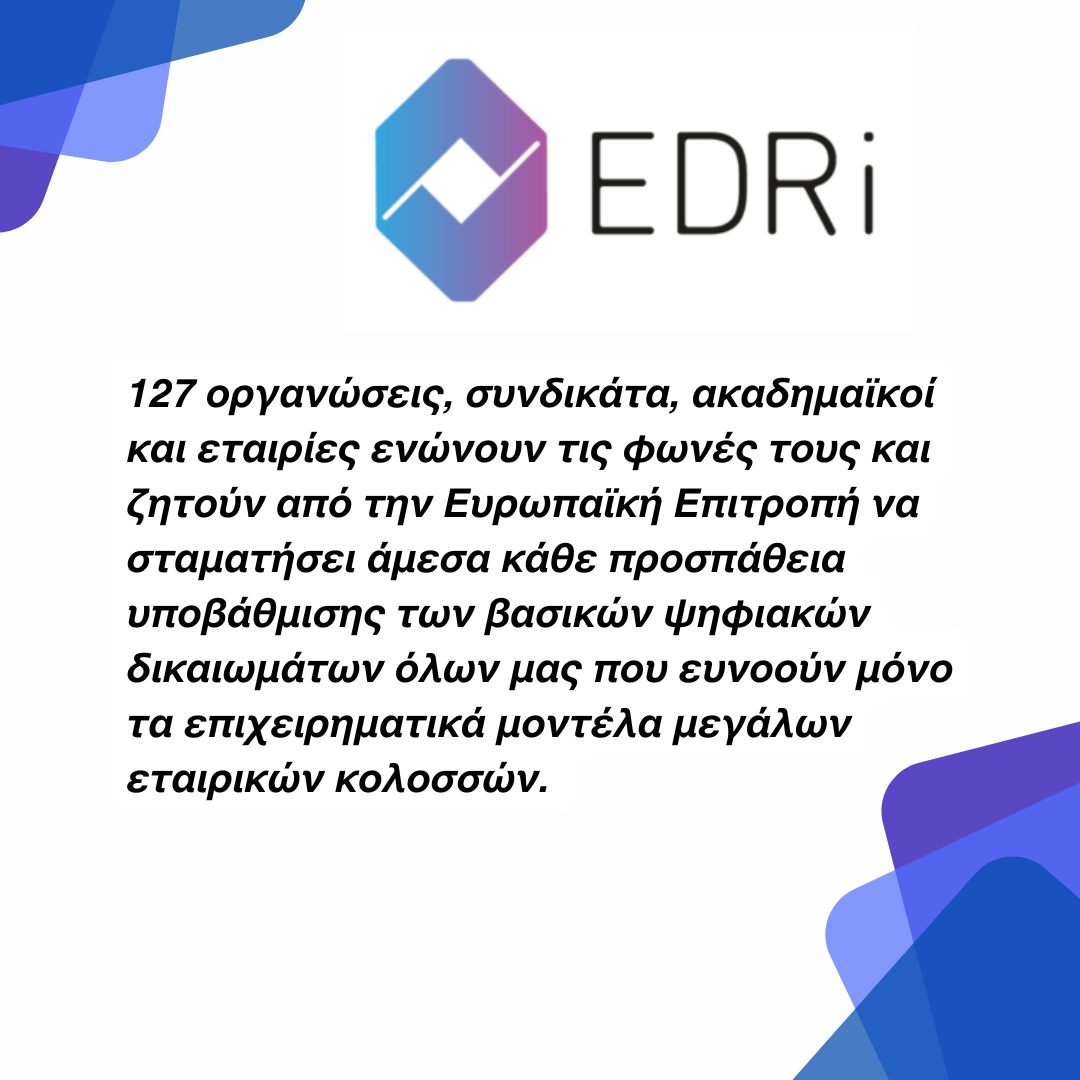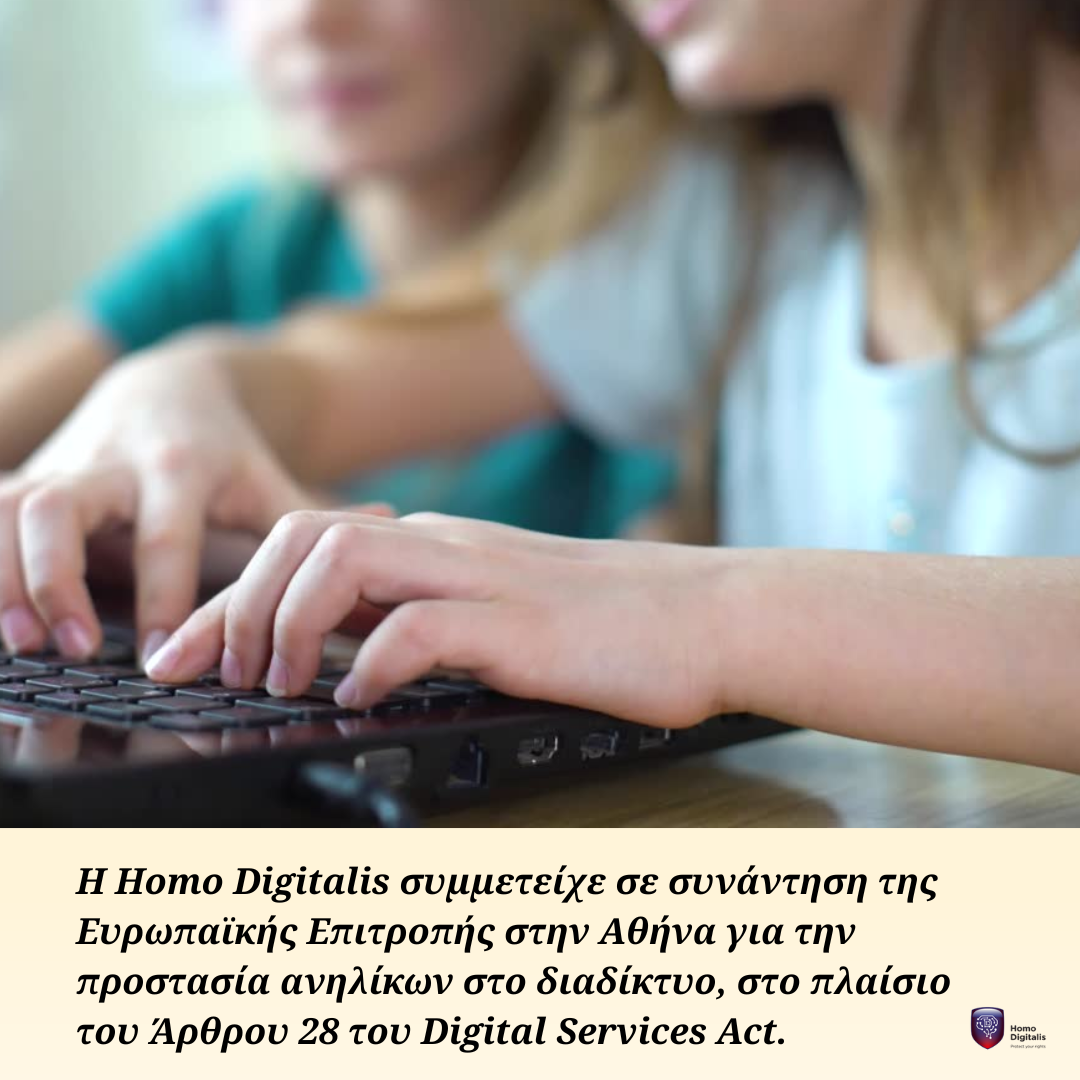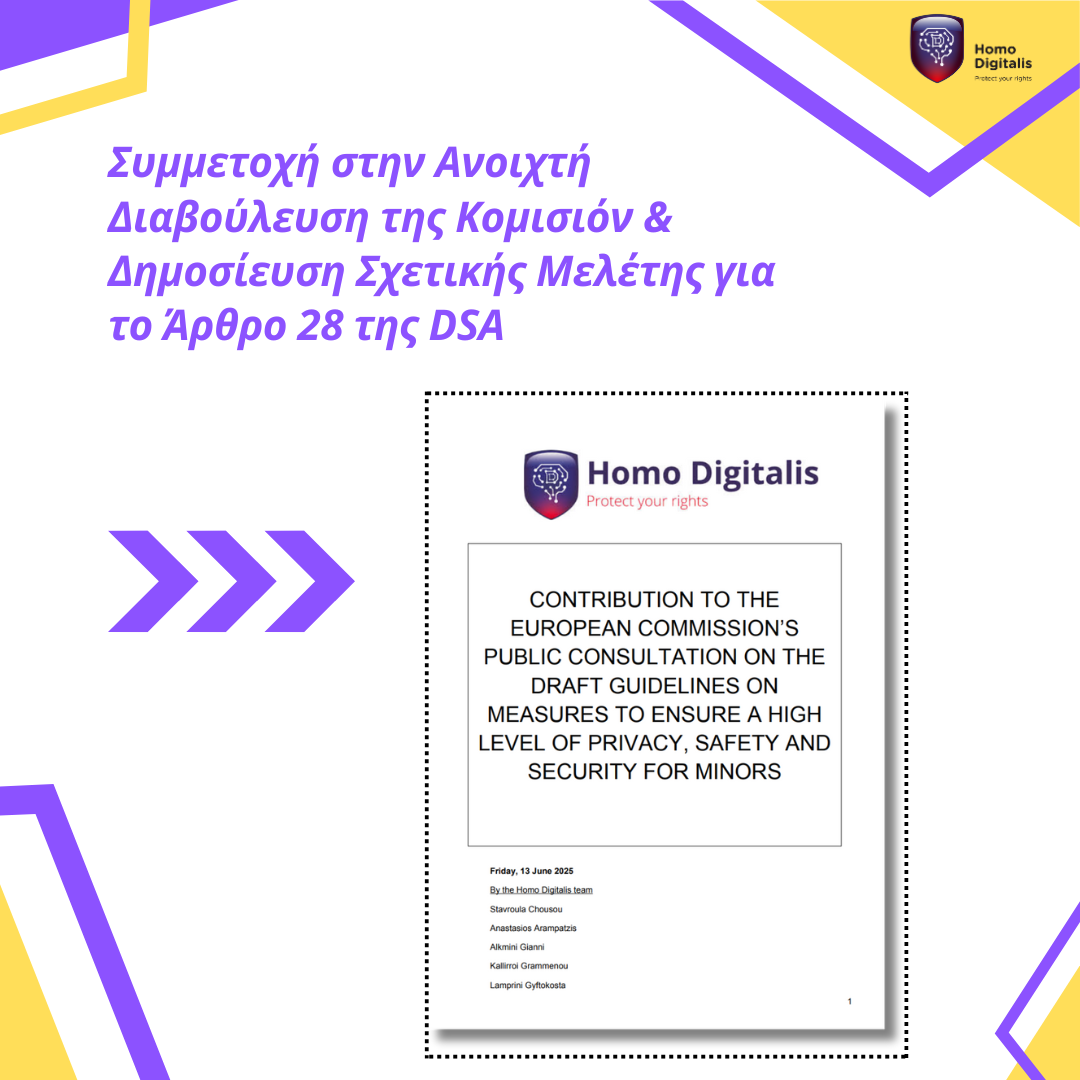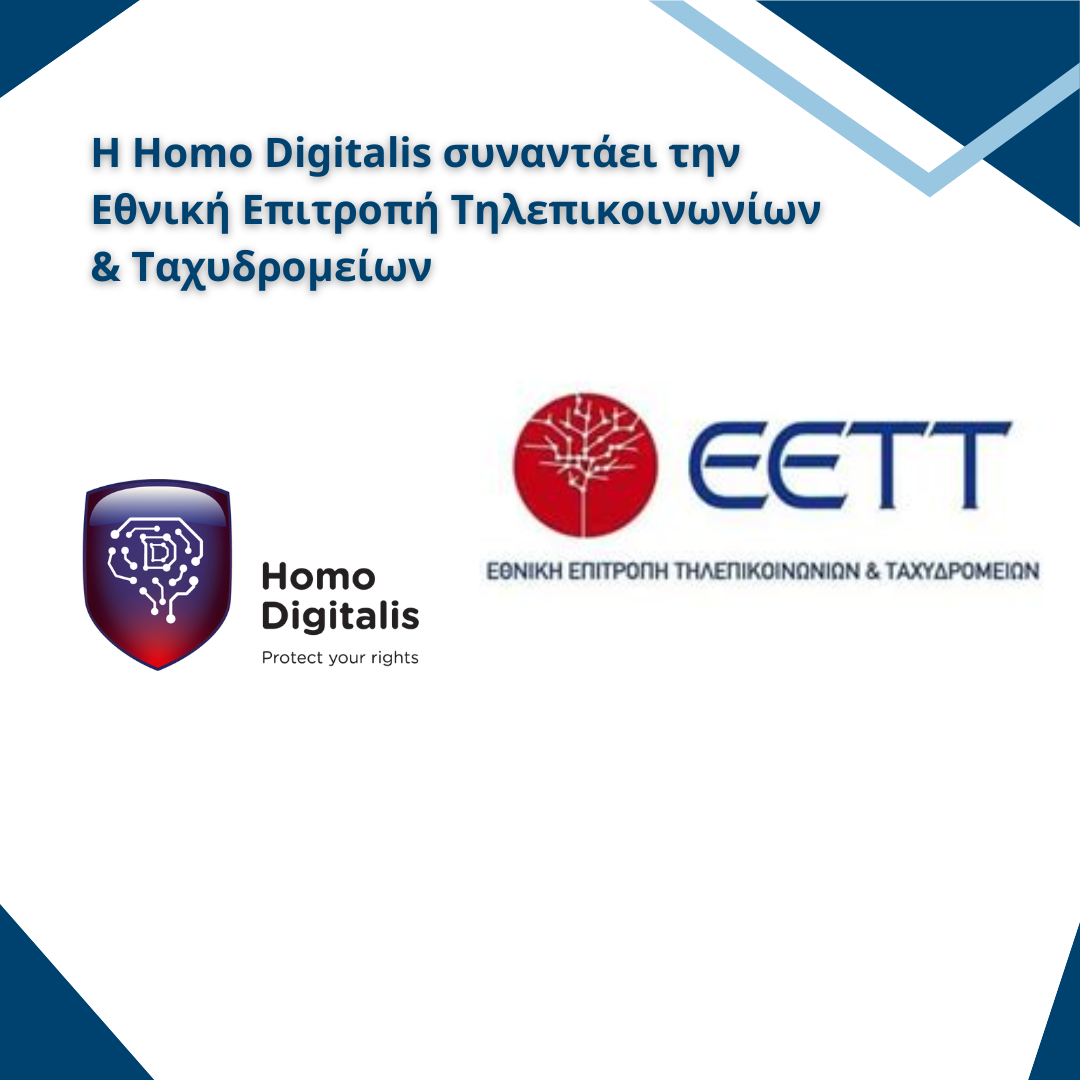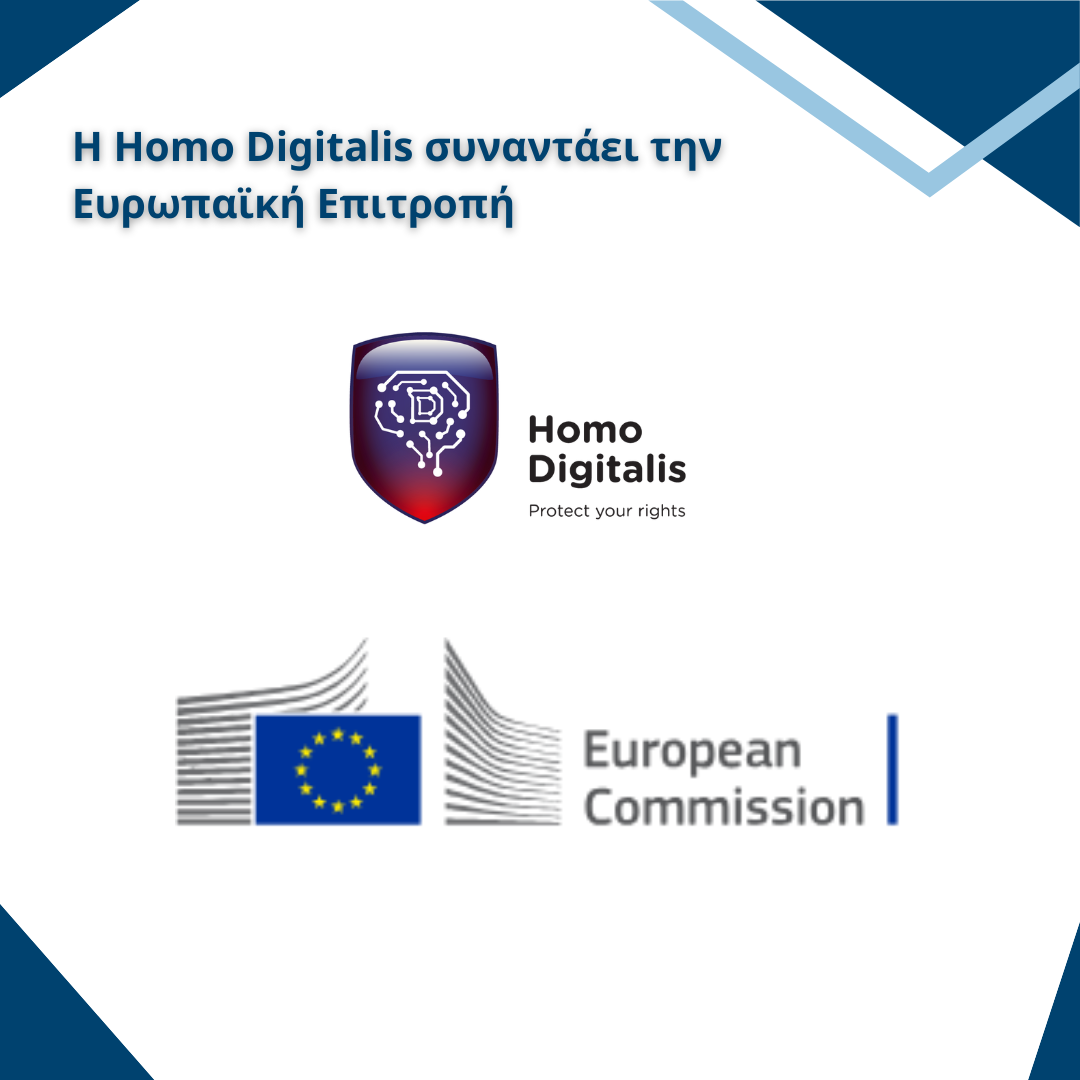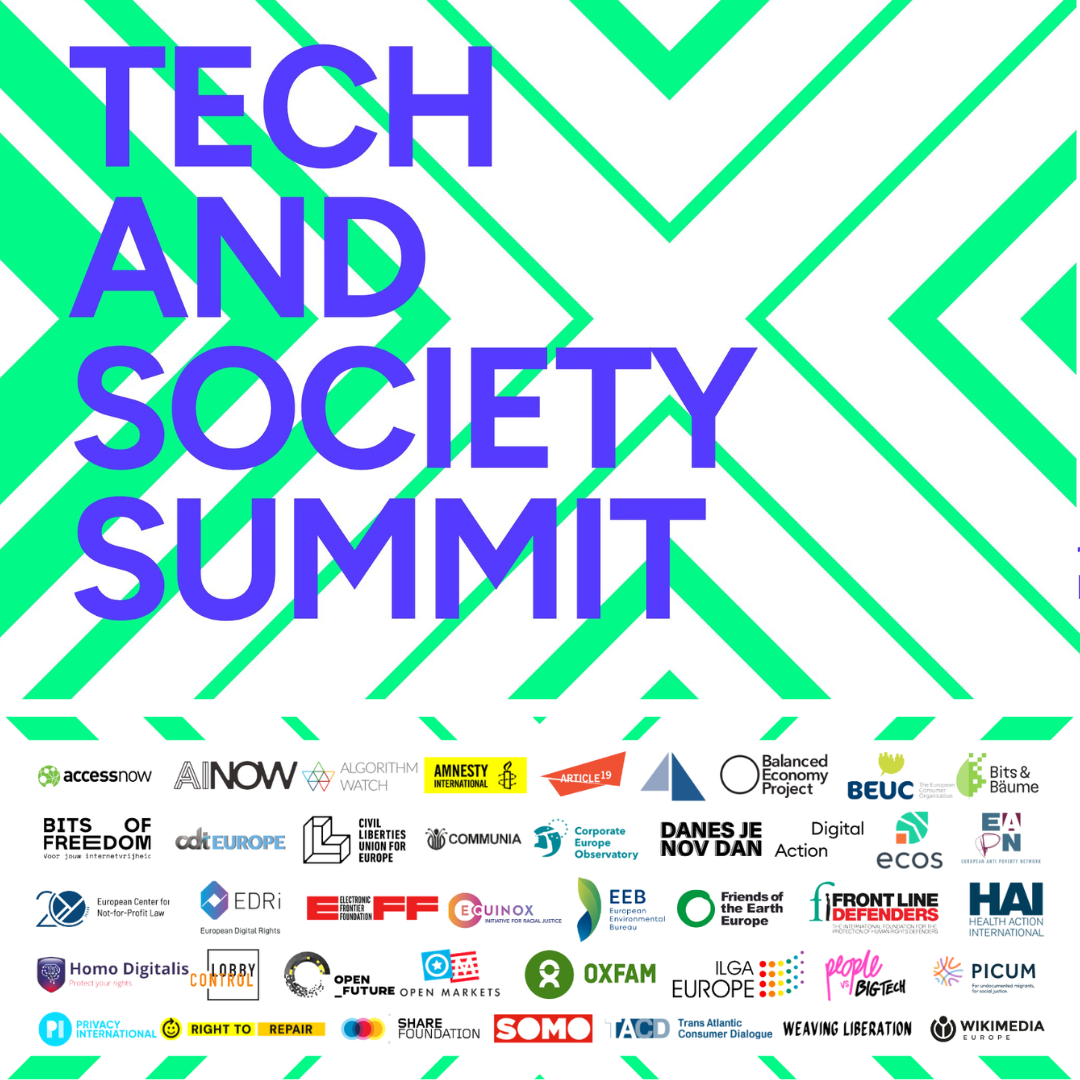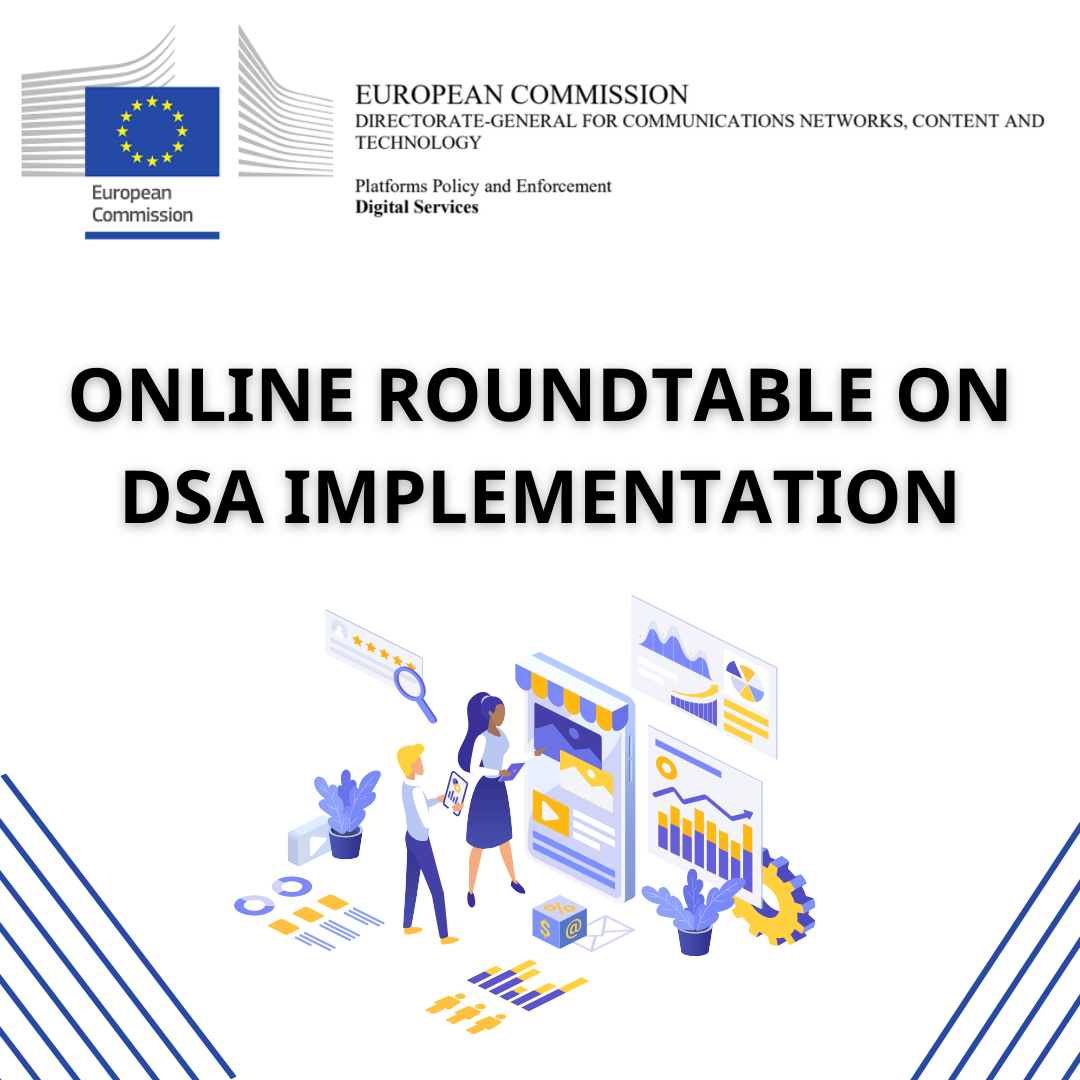Homo Digitalis gives an interview on ATHINA 9.84
This Friday, November 28, at 19:30, tune in to ATHINA 9.84!
Homo Digitalis is delighted to be a guest on the radio show of the Hellenic League for Human Rights, where we will talk about our work in the field of digital rights.
Our Co-founder and Treasurer of the Board, Konstantinos Kakavoulis, will represent us, while the show will be hosted by Taygeti Michalakea, Board Member of the Hellenic League for Human Rights.
We warmly thank them for the kind invitation and the honorable interest in our work!
Press Release on today’s announcement of the Digital Omnibus packages:
The proposed provisions of the Digital Omnibus were made public today, placing our rights and the safeguards protecting us in the digital environment at serious risk.
These new proposed regulations threaten the core of the European data protection framework and a range of other digital rights, directly affecting key instruments such as the GDPR, the ePrivacy Directive, and the AI Act.
The European Commission’s broader deregulation agenda primarily serves the interests of large technology companies, sidelining fundamental rights. Through these choices, the European Commission is effectively deviating from its mission and failing to fulfil its institutional responsibility.
We call on the Council of the European Union and the European Parliament to reject this attempt to dismantle the European framework for Digital Rights, and instead to focus on the consistent and effective enforcement of the rules that are already in place.
Read our full press release here.
Joint Open Letter on the Digital Omnibus Packages to the European Commission
On Wednesday, 19 November, the European Commission will present the new “Digital Omnibus,” a reform that threatens to dismantle fundamental protections of our rights and freedoms in the digital sphere.
In May and October 2025, we warned through open letters that this initiative is part of a broader wave of deregulation that will weaken key European rules, portraying rights as an obstacle to innovation and serving the interests of major technology companies.
A few days ago, leaked draft documents confirmed our fears: the EU is one step away from the largest rollback in the protection of human rights in the digital space. The GDPR, ePrivacy, and even the already weak provisions of the AI Act appear to be targeted for dilution, along with other related legislation.
Together with European Digital Rights, 127 organizations, trade unions, academics, and companies are joining their voices and calling on the European Commission to immediately halt any attempt to undermine our fundamental digital rights—efforts that benefit only the business models of large corporate giants.
Read our letter here.
Homo Digitalis Participates in the European Commission’s Meeting on the Protection of Minors Online under the DSA Framework
The Directorate-General for Communications Networks, Content and Technology (DG CONNECT) of the European Commission visited the offices of the Representation of the European Commission in Athens, holding a series of discussions within the framework of the Digital Services Act (DSA) with various stakeholders and interested parties.
On Tuesday, September 30, a meeting was held on the topic of “Protection of Minors,” aiming to exchange views while taking into account the Commission’s recent Guidelines on Article 28 of the DSA and the need to strengthen the protection of minors online.
Homo Digitalis had the honor to participate in the discussion alongside representatives from independent authorities (EETT, Hellenic Data Protection Authority, National Council for Radio and Television), as well as representatives from the Ministry of Digital Governance, the academic community, and other organizations.
We warmly thank Ilektra Makraki, representative of the European Commission Representation in Greece for the DSA, for the invitation and inclusion. Homo Digitalis was represented at the meeting by its Co-founder and Executive Director, Eleftherios Chelioudakis.
We submitted our views to the European Commission’s public consultation on Article 28 of the DSA
On June 13, Homo Digitalis submitted its responses to the European Commission’s Public Consultation regarding the guidelines for the protection of minors online, within the framework of Article 28 of the Digital Services Act.
The responses to the questionnaire were accompanied by a study, which provided a more detailed explanation of the relevant proposals and concerns.
The editorial team for this action consisted of Stavrina Chousou, Anastasios Arampatzis, Alkmιnι Gianni, Kalliroi Grammenou, and Lamprini Gyftokosta.
You can read the responses to the questionnaire here.
You can read the study here.
Homo Digitalis meets with the Hellenic Telecommunications & Post Commission
The Hellenic Telecommunications and Post Commission (EETT) welcomed the non-profit organization Homo Digitalis to its offices on May 29, 2025. In this context, we discussed with the Directorate of Digital Services and Digital Affairs of EETT its work in the field of supervising compliance with the DSA in Greece.
We are very pleased with EETT’s kind invitation to this meeting and look forward to strengthening our cooperation in the near future.
Homo Digitalis meets with the European Commission
On May 19, 2025, Homo Digitalis welcomed to its offices the representative of the European Commission in Greece (Directorate-General for Communication Networks, Content and Technology – Platforms Policy and Enforcement, Unit CNECT.F1) regarding the implementation of the DSA. In this context, we discussed the Commission’s work in the field of supervision, as well as possible avenues for cooperation.
We co-organize and participate in the Tech & Society Summit in Brussels
The Tech and Society Summit is approaching and will take place on Tuesday, 1st October in Brussels! This exciting conference, co-organized by EDRi in collaboration with Homo Digitalis and over 40 other organizations, will bring together leading experts, policymakers, and human rights advocates to discuss the intersection of technology and societal impacts in Europe. The summit will cover critical issues, ranging from digital rights and climate change to AI regulations, contributing to the shaping of a fair and equitable digital future for all.
We are excited that Eleftherios Chelioudakis will represent Homo Digitalis as a speaker at the session Visionary Roundtable: Building an EU Digital Enforcement Strategy. With important laws such as the Digital Markets Act (DMA), Digital Services Act (DSA), and AI Act, Eleftherios will highlight the actions of Homo Digitalis, discussing how these regulations can effectively protect rights and boost Europe’s competitiveness in the digital space.
Additionally, Homo Digitalis has been invited to participate in the session Fundamental Rights in Focus: Joint Efforts for Spyware Regulation in the EU, co-organized by the Centre for Democracy & Technology Europe (CDT Europe) and Amnesty International. In this session, key policymakers and civil society representatives will meet to explore ways to regulate spyware in the EU, and we will discuss our experiences from the latest related developments in Greece.
You can read more about the Tech and Society Summit and view its program here.
We participated in European Commission’s roundtable on the DSA enforcement
Last Monday, the 8th of July, Homo Digitalis was invited to participate in the European Commission’s Roundtable on the implementation of the Digital Services Act.
During the roundtable, the European Commission presented an updated of the various steps taken on DSA enforcement so far, highlighting how Civil Society Organizations can act as an important ally in this field. Also, the EC provided an updated on the A.28 Guidelines with regard to the Protection of Minors.
Next, the CSOs that participated in the roundtable had the opportunity to share with the European Commission their current activities, expertise and project capacities in key areas of the implementation of the DSA and exchange views on activities and plans.
We would like to thank the European Commission for this important opportunity to engage with CSOs and their kind invitation to participate in this roundtable. It remains to be seen if national authorities at Greek level, will follow a similar approach and invite Homo Digitalis and other CSOs to a fruitful dialogue with regard to the enforcement of the DSA and the Greek Law 5099/2024.
Our team was represented in the roundtable by Eleftherios Chelioudakis.


